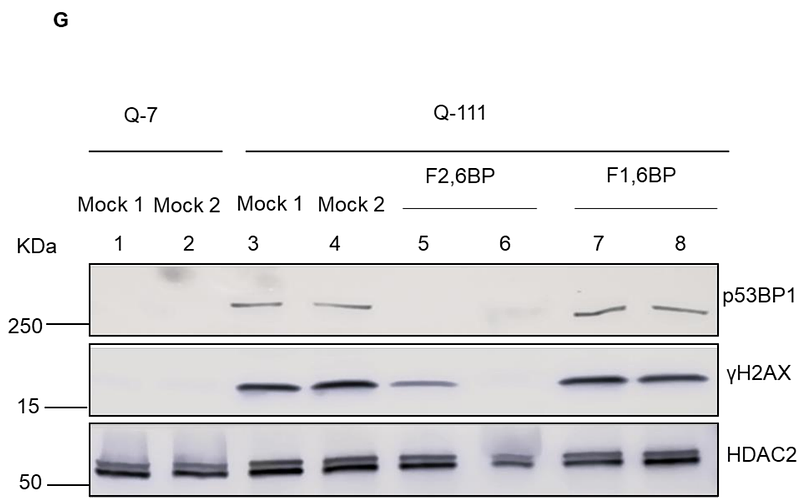A glycolytic metabolite restores DNA repair activity of polynucleotide kinase 3-phosphatase in polyglutamine (PolyQ) diseases

A glycolytic metabolite restores DNA repair activity of polynucleotide kinase 3-phosphatase in polyglutamine (PolyQ) diseases
CHAKRABORTY, A.; Miller, W.; Huai, W.; Biswas, T.; Mandal, S. M.; Bosca, L.; Ghosh, G.; Hazra, T.
AbstractWe previously reported that the loss of activity of an essential DNA repair enzyme, polynucleotide kinase 3-phosphatase (PNKP), resulted in accumulation of double strand breaks (DSB) in patients brain genome in Huntingtons disease (HD) and Spinocerebellar ataxia type 3 (SCA3). Here we document that PNKP interacts with the nuclear isoform of phosphofructokinase fructose-2,6-bisphosphatase 3 (PFKFB3), which converts fructose-6-phosphate (F6P) into fructose-2,6-bisphosphate (F2,6BP), a potent allosteric modulator of glycolysis. Depletion of PFKFB3 markedly abrogates PNKP activity, thereby affecting PNKP mediated transcription-coupled non-homologous end joining (TC-NHEJ). Both PFKFB3 and F2,6BP levels are significantly lower in the nuclear extracts of HD and SCA3 patients brains. Exogenous F2,6BP restored PNKP activity in the brain nuclear extracts of those samples. Moreover, delivery of F2,6BP into HD mouse striata-derived neuronal cells restored PNKP activity, transcribed genome integrity and cellular viability. We thus postulate that F2,6BP serves in vivo as a cofactor for proper functionality of PNKP and thereby of brain health. Our results thus provide a compelling rationale for exploring therapeutic use of F2,6BP and related compounds for treating polyQ diseases.